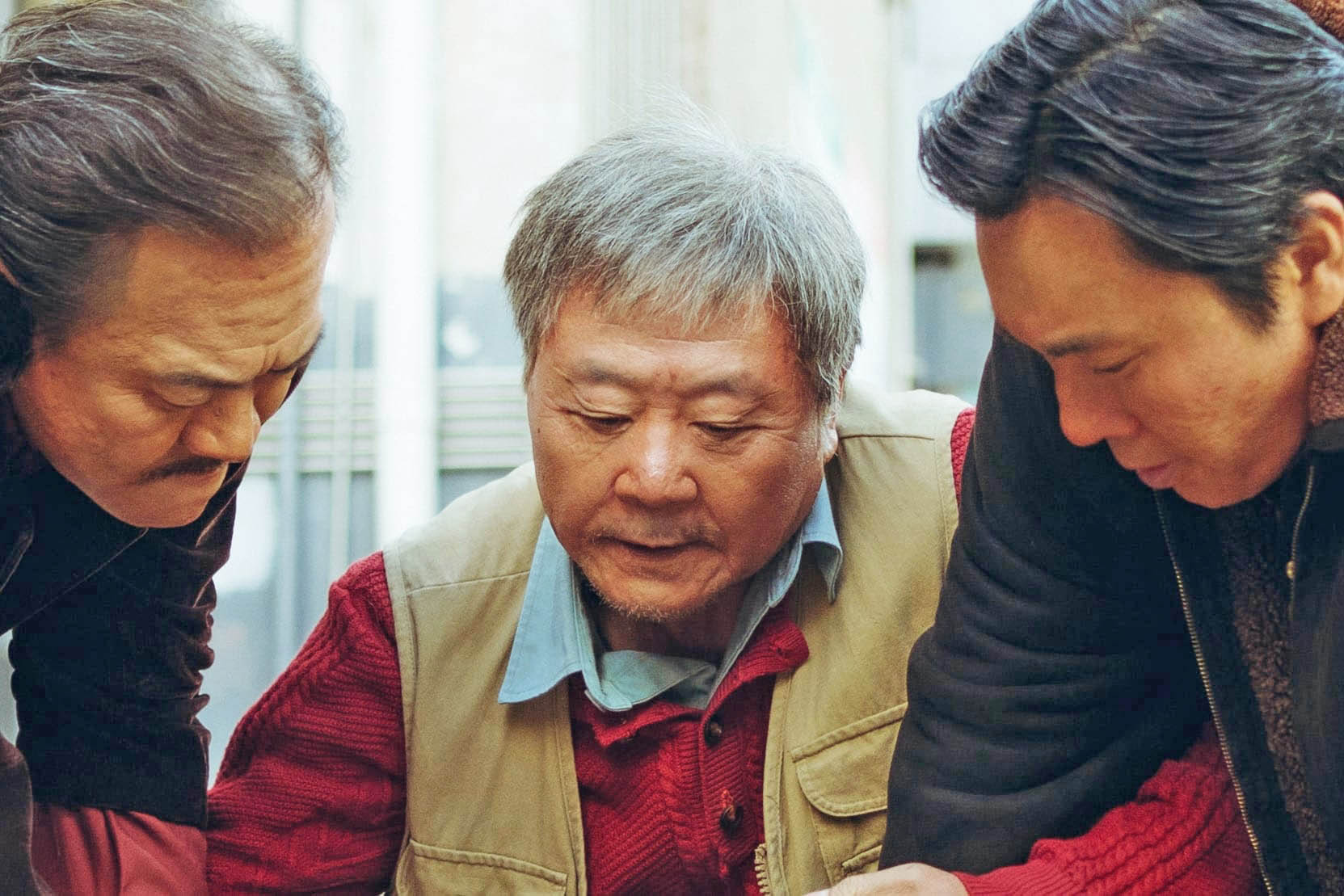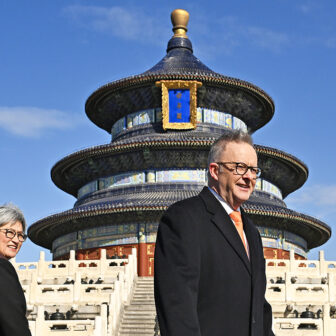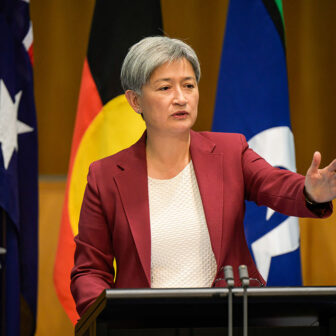The beginning is slow, the story is bleak, the hero is growing old and doddery, and there are no heroines, only victims. Yet China’s top-rating drama for 2023, The Long Season (Manchang de jijie), is gripping viewing.
In Australia it is available only on YouTube, with sometimes hilarious computer-generated subtitles. As long as viewers bear in mind that “the cavalry in the birch wood” means “Captain Ma in the town of Hualin” the story will carry them effortlessly along from its gentle beginning to its bitter-sweet ending.
The Long Season is based on an even bleaker novel, Yu Xiaoqian’s The Cutting Edge of Winter. The story centres on an elderly man’s dogged search for whoever killed his son nearly twenty years earlier. The cold case investigation, with its post-industrial social criticism and #MeToo edge, mixes grim subject matter with moments of levity and ends with a message of hope. Imagine the cast of the BBC’s New Tricks in a Ken Loach movie and you’ll get the picture.
The setting is a rustbelt town in northeast China called Hualin, hometown to our ageing hero, Wang Xiang (Fan Wei), and the site of an ailing steel factory. The series is filmed in split time, the events of 1997–98 shown in flashback from 2016. Wang, once a “model worker” who drove a freight train for the factory, is now a taxi driver. His college-educated brother-in-law, Gong Biao (Qin Hao), used to work in the factory’s office; he drives a taxi too. When a chance event involving Gong’s taxi leads Wang to suspect that his son’s killer has resurfaced, the two men join forces with retired cop Captain Ma (Chen Minghao), who investigated the original case.
Much of the series’ popularity rests on the relationship between these three characters. Their dealings with each other range from bumbling strategising to resigned philosophising. Variously single, widowed and on the edge of divorce, they are in the process of coming to terms with the lives they’ve had. Their pursuit of the case, and its link with Gong’s taxi, seems at one level like a dramatic realisation of this process.
They all struggle to maintain control over their lives. Wang has prostate problems. Gong is diabetic. Health problems among people in the town and the cost of treating them make up a minor but persistent refrain. Director Xin Shuang’s father was dying while he was making the series. His close observation of the challenges of old age and the cost of hospital care may have informed his treatment of these topics.
Juxtaposed with the character-driven treatment of the three men — middle-aged in 1997, getting old in 2016 — is a plot-driven story about the younger generation. Wang’s son Yang (Yitie Liu) is a budding poet. The girl he loves, Shen Mo (Teresa Li), is a medical student with a troubled background who plays piano in a nightclub to support herself. Shen’s deaf-mute brother and his business partner run a home-made cinema showing videos on a clapped-out television. Their lives interact, often violently, with those of other young people adrift in the ruins of socialism.
Confronted with the fraying of the social fabric, the parents cling desperately to the known world of lifetime employment in a factory where workers were the masters. In one of many references to that disappearing world, episode six has Yang’s mother, Meisu, reflecting on how different life was for them.
“Our generation was used to being organised,” she says. “At home, there were lots of children, and we obeyed our parents in everything. In the collective when we grew up, we had to listen to our leaders. We’ve always felt that there’s a circle surrounding us. All our lives we just walked in that circle and no one stepped outside of it for any reason, not even to put a foot on a coin.”
By 2016, the lives of the young people have either come to an end or come to nothing. With its focus on older men struggling on in a landscape significantly devoid of women and children, the series forces reflection on what the society has done to itself.
Out of this Pandora’s box hope wings its way in episode twelve. There is justice — the corrupt manager of the steel factory gets his comeuppance — and there is a woman, a former factory worker, who offers Wang the possibility of someone with whom to “pass the days.” In a remarkable scene performed by the accomplished Fan Wei, Wang talks to her indirectly about that possibility, glancing at her occasionally in the rear mirror of the taxi he is driving.
There is also a child: Wang’s younger son, born in 1997, his origins unexplained until the very end of the series. And there is a future that lies in (where else?) Beijing, China’s centre of wealth, culture and politics, as Wang more than once states. The long-dead elder son never got there but the younger son will.
Reviewing the series for Foreign Policy, James Palmer asks “how did this brilliant Chinese rust belt noir get made under Xi?” The answer surely lies in its redemptive conclusion. At the end of the final episode the camera returns viewers to the cornfields that greeted them at the beginning of the series. The narrow-gauge railway along which the factory train once ran is still there. Wang stands by the track with a beatific visage as the train once more chuffs into view, his younger self at the controls. “Look forward,” old Wang calls to him. “Don’t look back!”
The media in the People’s Republic of China has tried to make this the central message of the series. For the Global Times, The Long Season “meets Chinese people’s demand for quality productions that deliver positive messages, such as the theme of the show: ‘Move on, don’t look back.’”
Yet the ending doesn’t feel quite right. With its series of betrayals, the story’s logic points to an alternative conclusion, the one Yu Xiaoqian wrote for the novel. There, readers discover that decades earlier, on the very day he was to be nominated a model worker, Wang witnessed the sexual abuse of a minor. Like a time-delayed bomb, his failure to report the crime precipitated the series of events that led to his son’s death. The novel ends not with him smiling in the cornfields but being forced to jump to his death.
Viewers can be grateful to the scriptwriters for leaving them with a gentler final scene. But the benign ending suggests, if not the hand of the censor then at least a process of self-censorship.
The fact that Yu Xiaoqian himself was one of the scriptwriters brings to mind the fate of Lao She’s 1939 novel Rickshaw Boy. In 1945 this profoundly pessimistic story about the failure of Republican-era Beijing to meet the modest aspirations of a rural migrant was issued in English translation with the unauthorised addition of two extra chapters and a happy ending.
Lao She was disheartened by the bowdlerisation of his work in the United States, but worse came when the Chinese-language original was savagely redacted during the revolutionary upsurge under Mao in the 1950s. The 1955 edition omitted one and a half chapters of the original, all sexual references, and some other incidental material. Lao She approved these alterations and apologised for the novel’s lack of optimism.
Optimism — “joyful socialism,” as it has been termed — is a hallmark of Chinese communism. On the small screen it is better expressed by China’s top-rating series in 2022, Daughter of the Mountains, the dramatisation of the true story of Huang Wenxiu, a village girl who makes it all the way to university in Beijing before returning home to participate in programs of poverty alleviation.
Unlike in The Long Season, where the Communist Party is hardly evident, in Daughter of the Mountains it is front and centre. Huang is a party member who rises to the position of local party secretary. She meets her death tragically in a car crash on a mountain road, one of the many slated for repairs under infrastructural plans for the region. But this is by no means a devastating finale, for Huang leaves a legacy of hope for a better future. In real life, her father paid tribute to the Communist Party for all the opportunities it had offered his daughter.
That two such very different series should have received equally high ratings in China says much about the divided self that China is today. •




